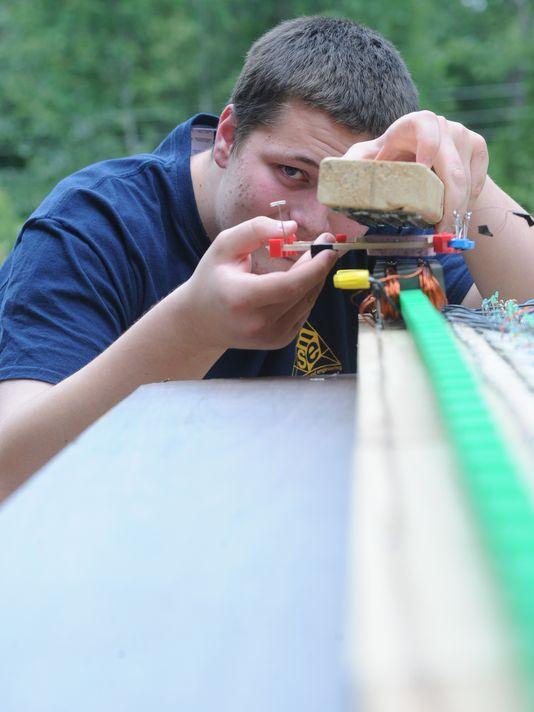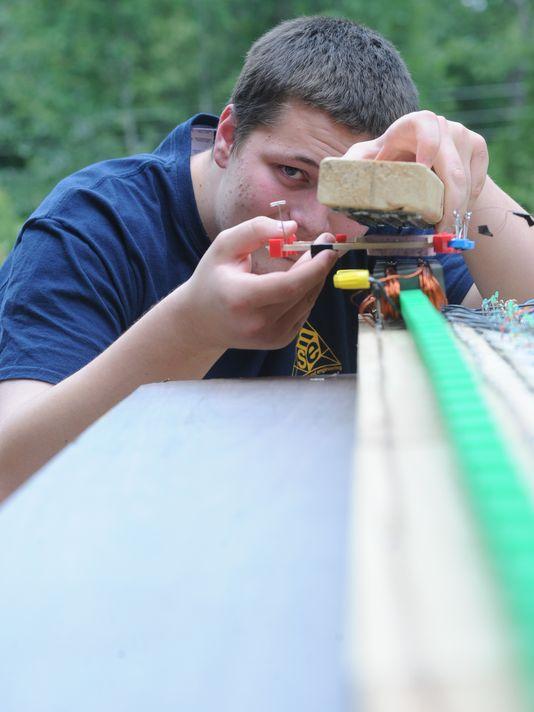By Donna Isbell Walker, staff writer, greenvilleonline.com
Keith Coffman will start his freshman year at Georgia Tech next month with an accomplishment about which few college freshmen can boast.
Coffman, 17, is one of 90 regional finalists in the Google Science Fair, an online science and technology competition for kids between the ages of 13 and 18.
Coffman's project, "Superconducting Levitation and Propulsion Control System," was chosen from thousands of submissions by teens in more than 120 countries, and he's in the running for the grand prize, which includes a $50,000 scholarship and a 10-day National Geographic Expedition to the Galapagos Islands.
Coffman, one of 30 finalists from the Americas region, also is a finalist for the contest's Computer Science Award.
This is the fourth annual Google Science Fair, and the goal is "identifying the next generation of scientists and engineers," said Google spokeswoman Shannon Newberry.
"These students have brilliant, creative solutions. ... We really want to foster the next generation of students who are really interested in pursuing science and engineering," Newberry said.
Coffman, who graduated from Carolina High School last month, built a system that uses superconductors to control the propulsion of mag-lev trains, which have traditionally used magnets to levitate above the train tracks.
Mag-lev trains, which are common in Japan, have begun using superconductors, which helped to inspire Coffman's project.
"They've made a system where you levitate with superconductors, and they can use linear induction motors as another way to propel. But I basically took the fact that you already had those superconductors and used that to also propel them," Coffman said.
For the contest, Coffman made some adjustments to a project he had created for his studies in Carolina's engineering program.
"I basically built a scale model of a mag-lev train and had to develop a control system that would allow me to propel it like you would in a real system," said Coffman, whose parents are Roy and Kathy Coffman.
"So in the end, I had a really small superconductor or two, rather. They were little disks. I made a little foam vehicle and got liquid nitrogen, wrapped coils, added magnets. And then I added sensors and just made a small train."
There were some challenges along the way, he said. Initially, he planned to build a three-meter-long track, but the copper wire proved to be a problem.
"We had huge copper wires to handle the current, and soldering those took, like, three irons to get it hot enough because copper redistributes heat really well. So it was really difficult to make it, time-consuming and tedious.
"I had to get my parents to help hold the irons. So I ended up only making the track that functioned about a foot long, maybe a little more than that. But it was enough to demonstrate that it works," he said.
The next round of judging for the contest is coming up in August, when the global finalists will be announced.
In addition, there will be winners in each age category, and they will receive a $25,000 scholarship.
The grand prize winner will be announced Sept. 22.
In a few weeks, Coffman heads to Georgia Tech, where he plans to dual-major in physics and materials science, and he hopes eventually to pursue a career in research.
Regardless of what happens in the next round of judging, Coffman said the experience has been an exciting one.
"I'm happy to get as far as I have so far," he said.
"Anything else would be extra fun."

